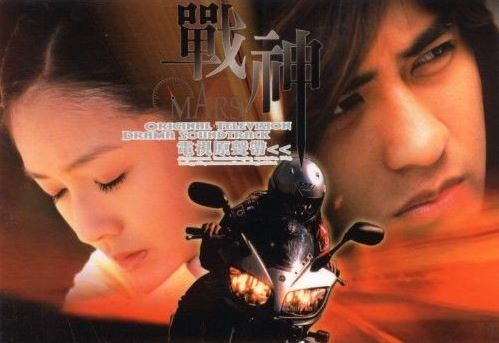 |
| The former Cardinal Robert Francis Prevost, now Pope Leo XIV |
 |
| His Holiness Pope Leo XIV |
Robert Francis Prevost, nicknamed Bob, was born on September 14, 1955, in Chicago, Illinois, USA, to a father of French-Italian descent and a mother of Spanish descent. His mother was a librarian, and his father was a US Navy veteran and a school supervisor. He has two older brothers, Louis and John.
He grew up in Dolton, Illinois, and completed his secondary education at St. Augustine Seminary High School, a minor seminary in Michigan. He joined the Order of Saint Augustine in 1977 and obtained a Bachelor of Science degree in Mathematics from Villanova University, a private Catholic University in Villanova, Pennsylvania, and one of the oldest Catholic universities in Pennsylvania.
Order of Saint Augustine
Augustinian priests followed Saint Augustine's principles, which govern chastity, poverty, obedience, detachment from the world, the apportionment of labor, the inferiors, fraternal charity, prayer in common, fasting, and abstinence proportionate to the strength of the individual, care of the sick, silence, and reading during meals.
Robert Prevost studied higher Theology and obtained a Master of Divinity from the Catholic Theological Union in Chicago while also working as a Physics and Math teacher in a private high school.
He later traveled to Rome, Italy, to study canon law (law of the church) at the Pontifical University of Saint Thomas Aquinas (Angelicum). In 1982, in Rome, he was ordained a priest at the Augustinian College of Saint Monica.
He took up a doctoral degree in canon law and in 1987, defended his doctoral thesis on "The Role of the Local Prior in the Order of Saint Augustine". He later appointed vocation director and missions director of the Augustinian Province of “Mother of Good Counsel” in Olympia Fields, Illinois (USA).
 |
| His Holiness Pope Leo XIV stepped onto the balcony of St. Peter's Basilica |
In 1988, he became an Augustinian missionary to Peru, a Latin American country in South America, and became the director of the joint formation project for Augustinian candidates. In Peru, Father Prevost immersed himself in missionary and pastoral work, becoming a superior of the community, formation director, and instructor for professed members.
He was acting as a judge in the regional ecclesiastical court and working in parish ministry on the city's outskirts. Interacting directly with the poor in Peru's interior, he proved successful in the Augustinians' efforts to recruit Peruvians for the priesthood and leadership positions in the order
In the Archdiocese of Trujillo, Peru, he became the judicial vicar and professor of Canon Law, Patristics, and Moral Theology at the Major Seminary of San Carlos y San Marcelo.
In 1999, he was elected Provincial Prior (superior) of the Augustinian Province of “Mother of Good Counsel” in Chicago. He also served as Prior or Superior General of the Order of Saint Augustine for two terms. This job made him travel extensively to different countries to attend important events of the Augustinian Order.
 |
| First view of the new Roman Pontiff on May 9, 2025 |
In 2014, he returned to Peru when Pope Francis appointed him Apostolic Administrator of the Peruvian Diocese of Chiclayo. He was elevated to bishop of Chiclayo in 2015, serving for eight years until his January 2023 appointment as Prefect (Head) of the influential Dicastery for Bishops (formerly the Congregation of Bishops) in the Roman Curia (Vatican's central government), receiving the title Archbishop-Bishop Emeritus of Chiclayo.
The Dicastery for Bishops oversees both the selection of new bishops and the formation of dioceses, among other matters, and is led by its prefect, appointed by the pope. In September 2023, Pope Francis made him a cardinal during a consistory at the Vatican on the eve of the Synod of Synodality.
As head of the Dicastery of Bishops, he participated in the Pope’s most recent Apostolic Journeys/Foreign State Visits (which allowed him to meet cardinals, bishops, and priests in the countries they visited) and in both the first and second sessions of the 16th Ordinary General Assembly of the Synod of Bishops on synodality, held in Rome from October 4 to 29, 2023, and from October 2 to 27, 2024, respectively.
In April 2023, he was appointed President of the Pontifical Commission of Latin America. Meanwhile, on October 4, 2023, Pope Francis appointed him a member of the Dicastery for Evangelization (Section for First Evangelization and New Particular Churches) headed by Cardinal Luis Antonio Tagle, for the Doctrine of the Faith, for the Eastern Churches, for the Clergy, for Institutes of Consecrated Life and Societies of Apostolic Life, for Culture and Education, for Legislative Texts, and of the Pontifical Commission for the Vatican City State (the legislative body of the state of Vatican).
Finally, on February 6, 2025, Pope Francis promoted him to the Order of Bishops, granting him the title of the Suburbicarian Church of Albano, a responsibility he held until his election.
Three days later, on February 9, just five days before Pope Francis was hospitalized, he celebrated the Mass presided over by His Holiness in St. Peter's Square for the Jubilee of the Armed Forces, the second major event of the Holy Year of Hope.
 |
| The first blessing given by the new pope to the people |
The Papal Name of Leo
The practice of choosing a Papal or regnal name began in the 11th century. But it's entirely a personal choice of the newly elected pope. They can pick whatever name they feel, except Peter (no popes in history had chose the name Peter in great respect to the first pope, St. Peter).
Most popes chose their papal name with a deep meaning, something that set the direction of their papacy. For example, Cardinal Jorge Mario Bergoglio chose the name Francis in honor of St. Francis of Assisi, who was known for his devotion to the poor.
Cardinal Prevost is the first Pope in 122 years to use the papal name of Leo, signifying a historical importance of the social teaching of the Catholic church.
The last Leo was the Italian Cardinal, Vincenzo Gioacchino Raffaele Luigi Pecci, who became Pope Leo XIII in 1878 until his death at the age of 93 in 1903. By choosing such a papal name, Pope Leo XIV seems to be setting the direction of his papacy to promoting the social teachings of the church and his commitment to social justice.
 |
| His Holiness Pope Leo XIII (1810-1903) |
Pope Leo XIII was the first Roman Pontiff at the start of the 20th century. He was the founding figure of the Catholic social justice tradition and was known as "the pope of the working man" because he championed the welfare of the workers.
He wrote the ground-breaking social encyclical (social teaching of the church), Rerum Novarum (literal meaning in Latin: Revolutionary Change), also known as Rights and Duties of Capital and Labor, in 1891.
Rerum Novarum served as an open letter to the world, addressing the condition of the working classes. It discussed the relationships and mutual duties between labor and capital, government, and its citizens, and the rights of workers.
Pope Leo XIII reigned in a time when the world was evolving into high industrialization, so he wrote a ground-breaking church teaching that gave emphasis on the rights of the workers and what the church must do to defend human dignity in the face of industrialization.
So if a name is an indication of the direction of his papacy, Pope Leo XIV seems to be committed to promoting social justice, protecting human dignity in the age artificial intelligence, building bridges for unity, peace, and fairness, and continuing the reforms introduced by his predecessor, Pope Francis, but at the same time, committed to safeguarding most of the traditional teachings of the Catholic Church.
As he begins his tenure as the successor to the throne of St. Peter, let's wait and see how he will govern the Roman Curia (central government of the Roman Catholic church), what are the reforms he will introduce, how he will make a difference as the messenger of peace, and his take on many social issues such the plight of migrants, environmental issues, humanitarian crisis, among others, which defined the papacy of Pope Francis. Pope Leo XIV might have a different approach to the papacy, but his knowledge about the current world will surely provide him enough background to lead the church that cares for people in the peripheries.
Long Live the Pope!
 |
| Pope Leo XIV reveals the reason behind his papal name |
Update: May 10, 2025
Just today, His Holiness revealed why he chose the name Leo as his papal name:
"I chose to take the name Leo XIV. There are different reasons for this, but mainly because Pope Leo XIII in his historic Encyclical Rerum Novarum addressed the social question in the context of the first great industrial revolution. In our own day, the Church offers to everyone the treasury of her social teaching in response to another industrial revolution and to developments in the field of artificial intelligence that pose new challenges for the defence of human dignity, justice and labour."
So it's clear that Pope Leo XIV wants the Catholic church to be prepared and be responsive to the challenges posed by the new industrial revolution, ensuring the human dignity can be protective, and justice and labor may not be abused. He wants his papacy to be the protector of human dignity. It's clear that the new pope will champion social justice in the face of new technology.












0 Comments